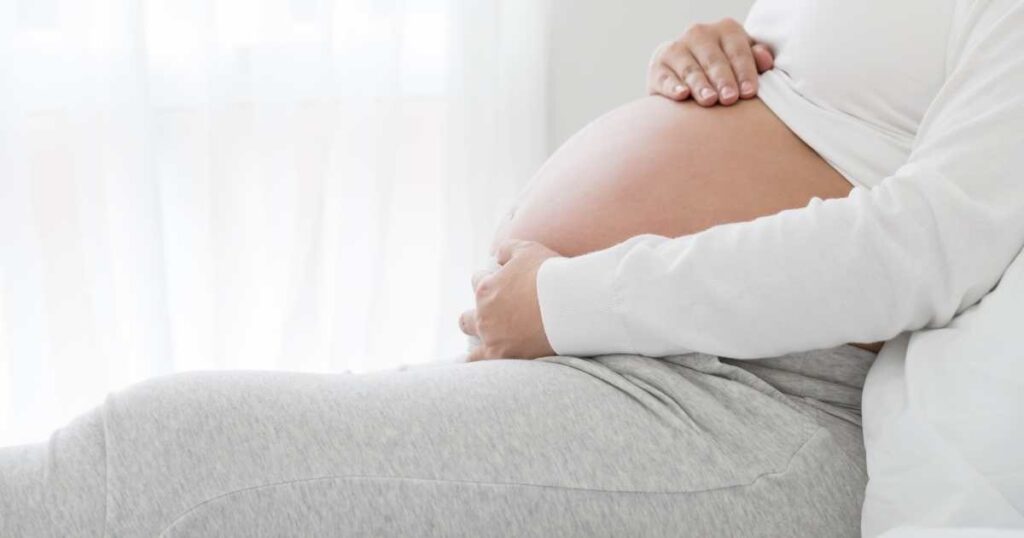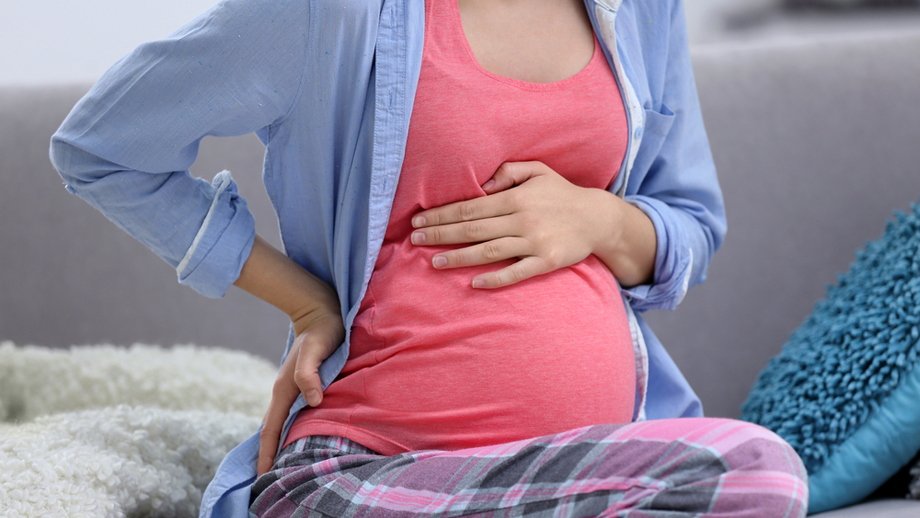
Heartburn is one of the most common problems experienced by women during pregnancy .A burning sensation is induced in the chest by acid reflux. An acid reflux is the movement of stomach acids into the oesophagus which is a tube that carries food, liquid, and saliva to the stomach. Even though it is called heartburn it is not related to the heart, rather it is a feeling of bitterness or sourness at the back of the throat. 8 out of every 10 women complain of severe heartburn in their third trimester of pregnancy.
Causes of Heartburn during Pregnancy
There are many possible causes of heartburn during pregnancy. All these causes are temporary and occur during pregnancy only.
Pregnant women experience a hormonal imbalance that increases their progesterone levels. The increase in this hormone causes the valve muscle between the oesophagus and stomach to relax, thus causing the acid to travel back to the oesophagus due to which heartburn occurs.
Another likely reason is indeed the increasing size of the baby itself. As the growing baby takes more space in the abdomen, it pushes the uterus (womb) more towards the stomach. This leads to the pushing of stomach contents into the oesophagus causing heartburn.
There are also chances of heartburn if women have second pregnancy or if she suffers from heartburn even without pregnancy.
Symptoms of Heartburn during Pregnancy
Various symptoms can be felt that indicate heartburn or acid reflux. These are:
-
- Pain or burning in the chest or throat, particularly after eating
-
- Felling of fullness, bloating, or heaviness
-
- Frequent burps or belch
-
- Sourness or bitterness in mouth
-
- Feeling of vomiting soon after eating.
Things or Habits that can trigger heartburn
Certain eating habits or foods can trigger the heartburn problem. These triggering factors should be avoided to prevent or minimize heartburn. Some dietary habits that initiate heartburn are:
-
- Consuming citrus fruit drinks
-
- Intake of spicy food
-
- Having food containing a lot of fats
-
- Eating a lot of chocolates
-
- Taking a heavy meal at one time
-
- Drinking caffeine-based drinks like tea, coffee, and cola
-
- Drinking alcohol (which is strictly not recommended in pregnancy)
-
- Other things that may trigger heartburn include:
-
- Exercising soon after meals
-
- Lying down to rest quickly after a meal
-
- Feeling of anxiety due to imbalance of the hormones.
-
- Other things that may trigger heartburn include:
As every woman is different so she may experience other triggering habits that cause heartburn. It is good to take note of one’s triggering factors.
Preventing heartburn during pregnancy
There are very few chances of complete heartburn-free pregnancy, but the good news is that there is nothing much to worry about the pregnancy-induced heartburn. Various measures can be taken to prevent excessive heartburn. Some helpful tips to are:
-
- Avoid eating three large main meals in a day. Instead, eat small meals after regular intervals of time.
-
- Eat slowly by chewing the food properly. It will promote easy digestion of the food.
-
- Avoid fried, spicy, or fatty foods that can trigger the heartburn
-
- Don’t lie down immediately after eating. Also, take the last meal at least 2 hours before bedtime to get sufficient time for digestion
-
- Do not smoke tobacco or drink alcohol which worsens heartburn and causes health problems to the baby as well.
-
- Avoid eating and drinking simultaneously, instead always drink liquid in between the meals to prevent stomach distension.
-
- Limit the consumption of caffeine.
-
- Sit upright while eating and avoid lying down, and slouching to prevent gastric juices from entering the oesophagus.
-
- Keep the head higher by placing pillows under the shoulders while sleeping.
-
- Wear loose-fitting clothes to prevent pressure on the abdomen.
-
- Avoid stress during pregnancy.
Heartburn treatment and remedies during Pregnancy
If the heartburn doesn’t go away even after preventive measures, then some natural remedies can control heartburn during pregnancy.
-
Prefer to drink warm milk having honey or almond milk after the meals or when there is acid reflux. Not only it curbs heartburn but it also provide much required calcium to the mothers.
-
Yogurt also relieves from the acidity, eating it regularly also keeps one away from heartburns.
-
Chewing sugarless gums also helps to keep away from acidity as it leads to more production of saliva that neutralizes excess acid in oesophagus.
- Eating soaked almonds can neutralize the juices in the stomach which can give relief to heartburn.
- Fresh, juicy, or dried papaya helps in relieving heartburn and also increases the level of Vitamin A and C in the body.
Along with the natural remedies over-the-counter antacids containing calcium carbonate or magnesium hydroxide can also be taken as they are generally safe to be used during pregnancy. But it is always advisable to consult the doctor before consuming them regularly for the right dosage.
However, if the heartburn is persistent then proton-pump inhibitors (PPIs) like cimetidine and famotidine or H2 blockers like lansoprazole and omeprazole can be prescribed by the doctor. These drugs mainly control the acid production in the stomach but if additional iron supplements are taken regularly then the PPIs and H2 blocker may reduce the effect of iron.
When to visit the doctor immediately?
Heartburn during pregnancy is persistent in the complete nine months of pregnancy in most of the women. All the preventive measures, remedies and medicine do help in controlling the heartburn to much extend. But the doctor should be visited immediately if:
-
There is blood in the vomit
- There is trouble swallowing food
-
There is loss in weight
-
The colour of the poop is black
- There is severe pain under the ribs
Conclusion
Pregnancy is the most precious experience a mother can have. The whole journey could be simple for some while hard for others for a variety of causes. Heartburn during pregnancy is the most prevalent complaint among women. Heartburn can be readily minimised to a large extent if adequate care is done by adjusting lifestyle behaviours during pregnancy, as well as following regular preventive measures, medicines, and doctor consultations.

